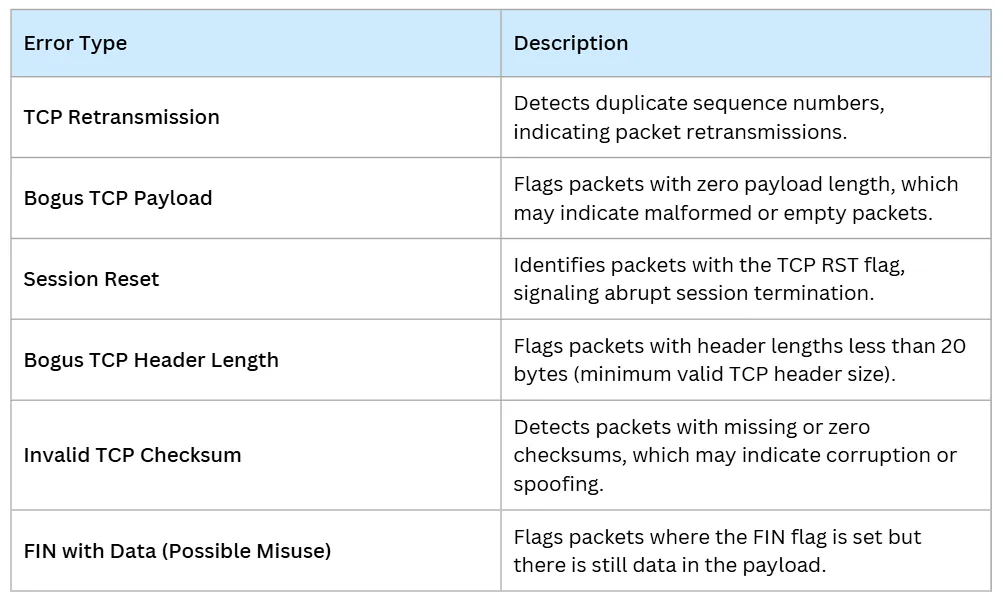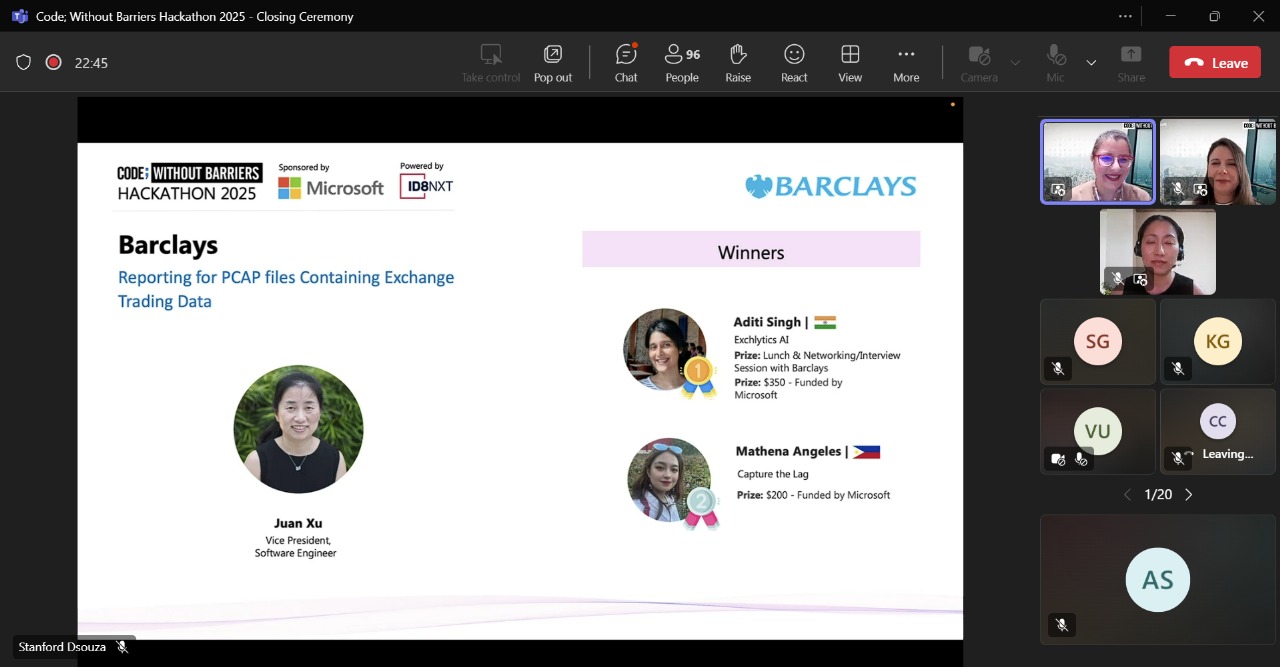When I first signed up for the Microsoft Code; Without Barriers Hackathon 2025, I was stepping into a world I knew almost nothing about. The problem statement given by Barclays - analyzing PCAP files from equity trading systems sounded complex and intimidating, especially since I had no background in network traffic analysis or financial trading.
But that's exactly why I chose it.
I wanted to push myself, learn something new, and see if I could build a solution from scratch by researching, experimenting, and applying myself in a completely unfamiliar domain.
I started by immersing myself in the basics: what PCAP files are, how high-frequency trading works, and why real-time network analysis matters so much in finance. I quickly realized that even a tiny glitch in network traffic can cause huge financial losses, making robust, intelligent analysis tools absolutely essential. My goal became clear: create a platform that could make packet analysis both powerful and accessible, even for those who aren't network experts.
How Exchlytics AI Works
1. PCAP Parsing
The backbone of Exchlytics AI is its ability to reliably parse large PCAP files and extract relevant trading and network data. I designed the parser to use PyShark by default for its robust filtering and extraction capabilities, but with a seamless fallback to Scapy for resilience.
Why this matters: This dual approach ensures that even if one library fails (which can happen due to file format quirks), the analysis continues smoothly.
2. Error Detection
After parsing, Exchlytics AI runs a series of checks to detect common network and trading issues. Here's a summary of the types of errors and anomalies it can identify:

3. Latency Analysis
Latency is critical in trading. Exchlytics AI groups packets by session and calculates the time between the first and last packet to estimate order execution latency.
Why this matters: This helps traders and engineers quickly spot slowdowns or bottlenecks in their systems.
4. AI-Powered Insights & Reporting
To make the system truly user-friendly, I integrated Microsoft's Phi model using Ollama for local inference. This allows users to ask questions in natural language and get AI-generated insights and reports, all while keeping sensitive data private.
5. Intuitive Dashboard & Scalability
The frontend is built with Streamlit, offering:
- Exchlytics AI
- Easy PCAP upload and parameter selection
- Real-time visualization with Plotly
- JSON-based data storage for scalability and easy integration
What Makes Exchlytics AI Unique?
- Resilient Parsing: Dual-library support ensures robust file handling.
- Comprehensive Error Detection: Catches a wide range of network anomalies specific to trading systems.
- Privacy-First: Local AI models mean no data ever leaves your machine.
- Plug-and-Play: Designed for seamless integration into existing compliance and monitoring systems.
Fireside Chat with Barclays
One of the most unforgettable moments during the hackathon was the fireside chat with Juan Xu, VP Software Engineer at Barclays Singapore. I had the incredible opportunity to present and discuss Exchlytics AI with her, walking through how the system analyzes traffic and provides actionable insights.
Juan shared invaluable insights into the real-world requirements of trading systems, from ultra-low latency demands to how minor packet losses can cause significant downstream issues. That conversation helped me better understand the depth and seriousness of system reliability in capital markets, and it validated the direction I was taking with Exchlytics AI.
Her encouragement and practical feedback were not only reassuring but also gave me new ideas for improving detection logic and integrating alert systems into the future roadmap.

Reflecting on the journey, I'm proud of how much I learned and how far I came from knowing nothing about this field. Exchlytics AI isn't just a tool - it's proof that with curiosity and determination, you can turn any challenge into an opportunity to grow.
Embrace the unknown. Break down the problem. Keep building. You'll be amazed at what you can accomplish.